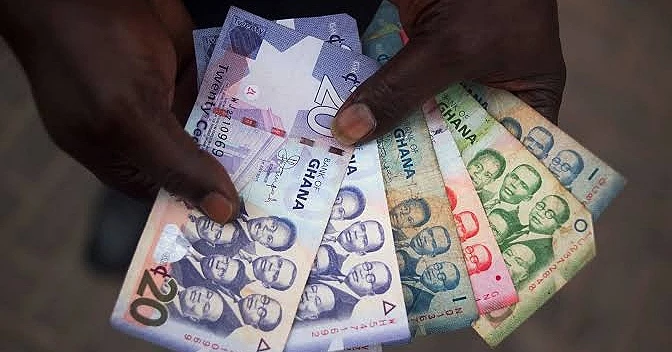Fitch Warns Gold Price Slump Could Undermine Ghana’s Reserves, Trigger Renewed Cedi Sell-Off
Fitch Solutions has cautioned that a significant drop in global gold prices—spurred by a shift toward conventional trade policies in the US or the resolution of key geopolitical tensions—could severely weaken Ghana’s external buffers and renew downward pressure on the cedi.
In its latest country risk outlook, the UK-based research and analytics firm warned that such a scenario would strain the Bank of Ghana’s capacity to defend the local currency, potentially unleashing another round of cedi depreciation.
“This would keep inflation elevated, lead to a weakening in consumer and investor sentiment and prompt the central bank to keep interest rates higher for longer,” Fitch noted in its downside risk assessment.
Ghana’s foreign exchange reserves have recently benefited from strong gold exports amid record-high prices, with the mineral playing a critical role in stabilising the cedi and anchoring inflation expectations.
Upside Potential Hinges on Cedi Strength
Conversely, Fitch said a further appreciation of the cedi would accelerate the disinflation process, enabling the central bank to ease interest rates earlier than currently projected. This, in turn, would support private consumption and stimulate credit growth across the economy.
“Stronger private consumption on the back of currency stability and lower inflation would create positive spillovers for domestic demand,” the report added.
Fiscal Restraint to Weigh on Government Spending
In its fiscal outlook, Fitch forecasts a contraction in government consumption in 2025 as Ghana presses ahead with expenditure controls under its IMF-supported fiscal consolidation programme.
“The contribution of government consumption will be negative in 2025,” the report stated, pointing to ongoing policy adjustments aimed at restoring macroeconomic stability.
Private Demand to Drive Growth
Nonetheless, the firm expects private consumption to remain relatively resilient, supported by a stronger exchange rate environment and elevated gold prices, which are expected to ease pressure on household budgets.
With Ghana’s economic outlook delicately balanced between commodity price dynamics and policy discipline, analysts note that sustained investor confidence will depend heavily on both the credibility of macroeconomic management and the country’s ability to shield itself from external shocks.
Fitch’s projections serve as a timely reminder of the vulnerability of Ghana’s economy to fluctuations in global commodity markets, even as policymakers seek to build resilience through structural reforms and tighter fiscal control.







